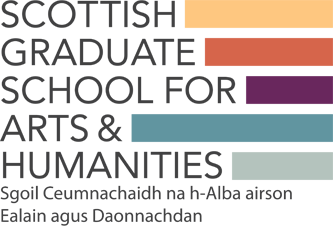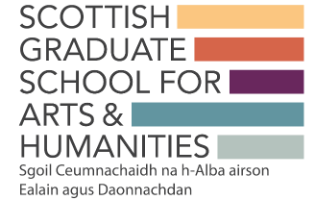University of Glasgow
Location
The researcher will work remotely.
Project
Research Integrity Microlearning Resources
The intern will develop resources and infographics to illustrate and help raise awareness of issues related to research integrity. The project aims to communicate key messages and advice on quite complex concepts and issues (e.g. plagiarism, authorship, data management and misconduct). However, subject knowledge is not essential but can be acquired on the project. The resources will be for online digital use, including the website and social media channels, and may also include moving images (e.g. video). The resources can be created in any format/s but must meet accessibility guidelines and be made available under a Creative Commons licence.
Outputs
- Create accessible resources to highlight research integrity topics, including activity and processes at the University of Glasgow which help integrate RI into research culture.
- Create images – for example infographics – to help engage viewers and summarise specific issues related to research integrity and the areas of conduct as detailed here.
- Collaborate on creating a clear and visually engaging report reviewing research integrity provision.
- Independently explore and innovate on communicating key messages for PGRs and research staff.
- Resources could be in any format or formats that can be used for online and printed content (for example, website, social media and paper brochures and pop-up banners), including video and moving images if preferred. Accessibility considerations are essential however.
Timescale
- Start date (or must start by) January 2022
- End date (or must end by) 30th April or June? 2022
- Hours to be worked in 3 month block
Benefits to the Host
The project aims to highlight and signpost processes, policies and issues to support good research practice. These microlearning resources will complement our existing Research Integrity training. The project will benefit the organisation by helping to highlight and more fully engage researchers in an issue which is central to research culture and quality. The project fits within the organisation’s overall objective of creating world changing research through one of its institutional strategic priorities for Research Culture 2020-2025, i.e., research integrity.
Benefits to the Researcher
The intern will:
- benefit from developing digital communication skills to a specific brief
- benefit from experimenting with digital skills in their chosen medium/s to a specific brief with the support of a mentor
- benefit from exploring ways to create engaging images to highlight challenging and complex themes and ideas.
- practice skills including creating work for digital platforms; gaining content management skills; working with others; working to a specific but changing brief; working to deadlines; and adapting to new ideas and audiences.
- gain insight into the challenges and opportunities of working within a large organisation.
- gain insight into working within brand guidelines.
- gain knowledge and insight into issues around research integrity
- gain knowledge of creating openly licensed resources
Key Relationships
The intern would be working from home but would be part of the Researcher Development team within Research and Innovation Services (R&IS). R&IS is the central service that provides a wide range of support for researchers including providing training opportunities and support for IP and commercialisation projects and managing funding schemes and the Research Excellence Framework (REF). As well as the wide range of professional staff in R&IS the intern’s audience will include researchers and research students. The Researcher Development team also employs other interns who can be a peer group.
Subject Areas
|
Panel A |
Panel C |
||
|
X |
Select all |
X |
Select all |
|
|
History |
|
Art History |
|
|
Law & Legal Studies |
|
Library & Information Studies |
|
|
Philosophy |
|
Cultural & Museum Studies |
|
|
Theology |
|
Archaeology |
|
|
Divinity & Religions |
|
Classics |
|
Panel B |
Panel D |
||
|
X |
Select all |
X |
Select all |
|
|
Design |
|
English Language |
|
|
Visual Arts |
|
Linguistics |
|
|
Architecture |
|
British Sign Language |
|
|
Creative Writing |
|
English Literature |
|
|
Film |
|
Scottish Literature |
|
|
Drama & Theatre Studies |
|
Cultural & Popular Studies |
|
|
Cultural Policy, Arts Management Creative Industries |
|
Asiatic & Oriental Studies |
|
|
Music |
|
French Studies |
|
|
Television Studies |
|
Scandinavian Studies |
|
|
|
|
Hispanic |
|
|
|
|
Portuguese & Latin Studies |
|
|
|
|
Italian Studies |
|
|
|
|
Middle Eastern & African Studies |
|
|
|
|
Russian |
|
|
|
|
Slavonic & Eastern European Studies |
|
|
|
|
German Studies (including Dutch & Yiddish) |
|
|
|
|
Interpreting & Translation |
|
|
|
x |
Journalism & Publishing |
|
|
|
x |
Media & Communication Studies |
|
E |
D |
Essential/Desirable |
E |
D |
Essential/Desirable |
|
A1 – Knowledge Base |
C1 – Professional Conduct |
||||
|
|
|
Subject Knowledge |
|
|
Healthy and Safety |
|
|
|
Research methods – theoretical knowledge |
|
x |
Ethics, principles and sustainability |
|
|
|
Research methods – Practical application |
|
x |
Legal requirements |
|
|
|
Information Seeking |
|
x |
IPR and copyright |
|
|
|
Information literacy and management |
|
x |
Respect and confidentiality |
|
|
|
Languages |
x |
|
Attribution and co-authorship |
|
|
|
Academic literacy and numeracy |
x |
|
Appropriate practice |
|
A2 – Cognitive abilities |
C2 – Research management |
||||
|
|
|
Analysing |
|
|
Research Strategy |
|
x |
|
Synthesising |
x |
|
Project planning and delivery |
|
|
|
Critical thinking |
|
|
Risk management |
|
|
|
Evaluating |
|
|
|
|
|
|
Problem Solving |
|
|
|
|
A3 – Creativity |
C3 – Finance, funding & resources |
||||
|
x |
|
Inquiring minds |
|
|
Income and funding generation |
|
|
x |
Intellectual insight |
|
|
Financial management |
|
x |
|
Innovation |
|
|
Infrastructure and resources |
|
|
|
Argument construction |
|
|
|
|
|
|
Intellectual risk |
|
|
|
|
B1 – Personal qualities |
D1 – Working with others |
||||
|
|
x |
Enthusiasm |
|
x |
Collegiality |
|
|
x |
Perseverance |
|
x |
Team working |
|
|
x |
Integrity |
|
|
People management |
|
|
x |
Self-confidence |
|
|
Supervision |
|
|
x |
Self-reflection |
|
|
Mentoring |
|
|
x |
Responsibility |
|
|
Influence and leadership |
|
|
|
|
x |
|
Collaboration |
|
|
|
|
|
x |
Equality and diversity |
|
B2 – Self management |
D2 – Communication & dissemination |
||||
|
x |
|
Preparation and prioritisation |
|
x |
Communication methods |
|
x |
|
Commitment to research |
|
x |
Communication media |
|
x |
|
Time management |
|
|
Publication |
|
x |
|
Responsiveness to change |
|
|
|
|
x |
|
Work-life balance |
|
|
|
|
B3 – Professional & career development |
D3 – Engagement and impact |
||||
|
|
|
Career management |
|
x |
Teaching |
|
|
|
Continuing professional development |
|
|
Public Engagement |
|
x |
|
Responsiveness to opportunities |
|
|
Enterprise |
|
|
|
Networking |
|
|
Policy |
|
|
|
Reputation and esteem |
|
|
Society and culture |
|
|
|
|
|
|
Global citizenship |
Person Specification
|
E |
D |
Essential/Desirable |
E |
D |
Essential/Desirable |
|
A1 – Knowledge Base |
C1 – Professional Conduct |
||||
|
|
|
Subject Knowledge |
|
|
Health and Safety |
|
|
|
Research methods – theoretical knowledge |
|
|
Ethics, principles and sustainability |
|
|
|
Research methods – Practical application |
|
|
Legal requirements |
|
x |
|
Information Seeking |
|
|
IPR and copyright |
|
|
|
Information literacy and management |
|
|
Respect and confidentiality |
|
|
|
Languages |
|
|
Attribution and co-authorship |
|
|
|
Academic literacy and numeracy |
|
|
Appropriate practice |
|
A2 – Cognitive abilities |
C2 – Research management |
||||
|
x |
|
Analysing |
|
|
Research Strategy |
|
x |
|
Synthesising |
x |
|
Project planning and delivery |
|
x |
|
Critical thinking |
|
|
Risk management |
|
x |
|
Evaluating |
|
|
|
|
|
|
Problem Solving |
|
|
|
|
A3 – Creativity |
C3 – Finance, funding & resources |
||||
|
|
|
Inquiring minds |
|
|
Income and funding generation |
|
|
|
Intellectual insight |
|
|
Financial management |
|
x |
|
Innovation |
|
|
Infrastructure and resources |
|
|
|
Argument construction |
|
|
|
|
|
|
Intellectual risk |
|
|
|
|
B1 – Personal qualities |
D1 – Working with others |
||||
|
|
x |
Enthusiasm |
|
|
Collegiality |
|
|
x |
Perseverance |
x |
|
Team working |
|
|
x |
Integrity |
|
|
People management |
|
|
x |
Self-confidence |
|
|
Supervision |
|
|
x |
Self-reflection |
|
|
Mentoring |
|
|
x |
Responsibility |
|
|
Influence and leadership |
|
|
|
|
x |
|
Collaboration |
|
|
|
|
|
|
Equality and diversity |
|
B2 – Self management |
D2 – Communication & dissemination |
||||
|
x |
|
Preparation and prioritisation |
x |
|
Communication methods |
|
x |
|
Commitment to research |
x |
|
Communication media |
|
x |
|
Time management |
|
|
Publication |
|
x |
|
Responsiveness to change |
|
|
|
|
|
|
Work-life balance |
|
|
|
|
B3 – Professional & career development |
D3 – Engagement and impact |
||||
|
|
|
Career management |
|
|
Teaching |
|
|
|
Continuing professional development |
|
|
Public Engagement |
|
x |
|
Responsiveness to opportunities |
|
|
Enterprise |
|
x |
|
Networking |
|
|
Policy |
|
|
|
Reputation and esteem |
|
|
Society and culture |
|
|
|
|
|
|
Global citizenship |
First published: 20 September 2021



